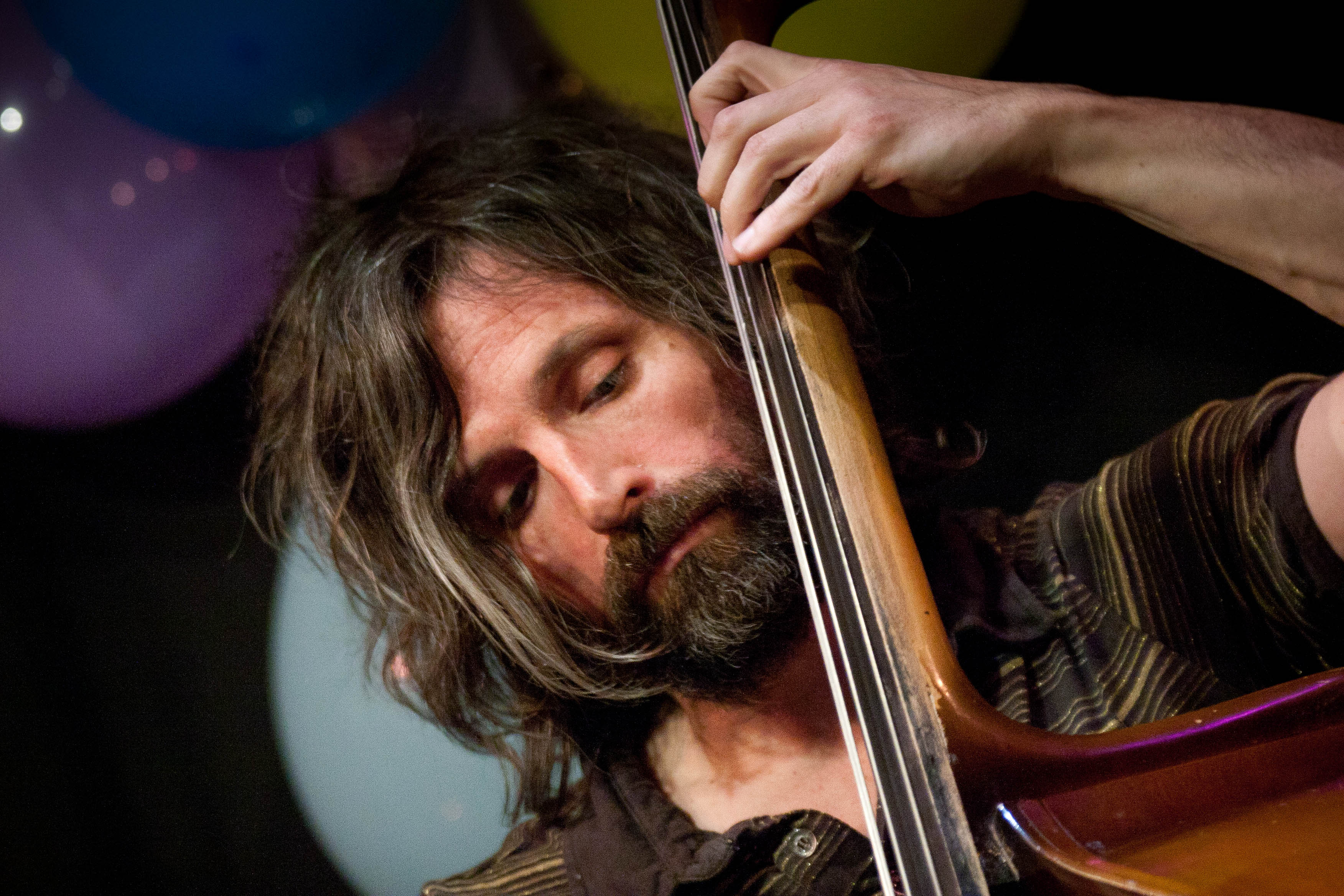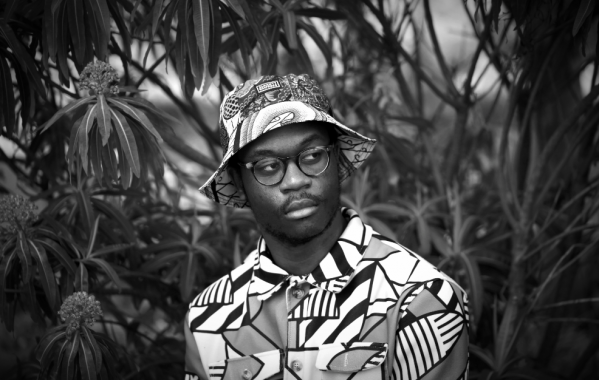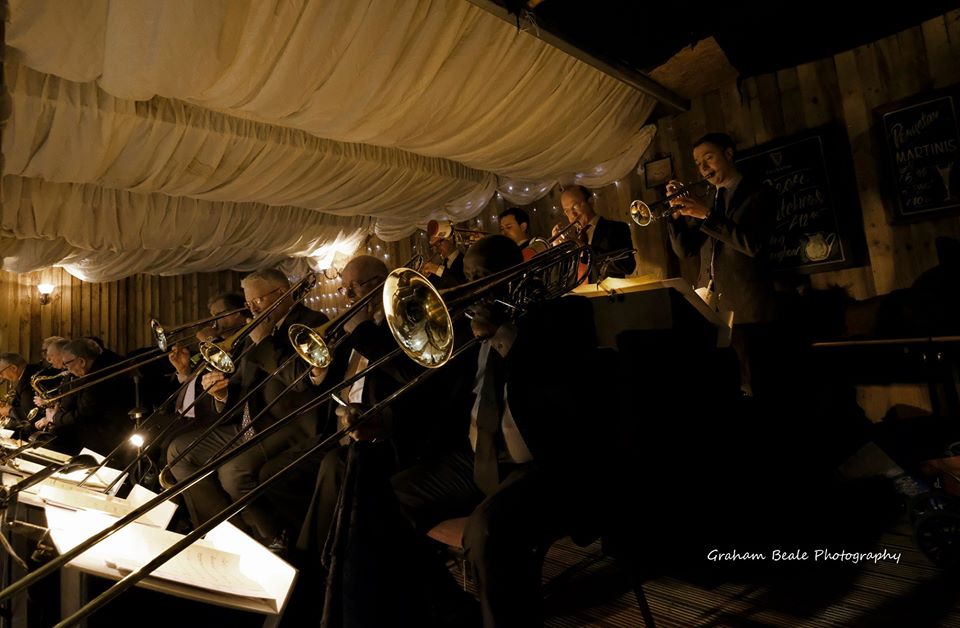The Column: Eddie Myer – Satisfaction, Finally

A combination of the diligent pursuit of journalistic integrity on behalf of you, dear reader, and the organiser’s generous assessment of my actual capabilities to deliver as such, resulted in my being fortunate enough to attend this year’s JazzFM Awards. The setting was the Shoreditch Town Hall, its high-Victorian architecture evoking a suitable spirit of municipally serious-minded yet aspirational collective endeavour. Would that my humble keyboard were able fully to describe the dazzling splendour of the assembled company, the rapier-like cut and thrust of the repartee, the sumptuousness of the canapés, and the dignity and forbearance of the ushers and waitresses, but these details will have to wait for the attentions of one upon whom Calliope has more generously bestowed her gifts. I can confirm that among the musical highlights were Laura Mvula’s performance of The Man I Love in tribute to Ella Fitzgerald, accompanied by pianist Oli Rockberger, Georgie Fame’s unexpected, affectingly artless cockney-flavoured rendition of ‘Everything Happens to Me’ backed by an all-star house band featuring Guy Barker, and a storming performance from New York man of the moment Donny McCaslin. Among the eclectic array of presenters adding lustre to proceedings were fearless guardian of the democratic process Gina Miller, scat supremo Cleveland Watkiss, eternally boyish radio star Gilles Peterson and famously irascible veteran Van Morrison, whose valiant but ultimately unsuccessful struggle with a recalcitrant microphone stand commanded the respect and admiration of all who witnessed it. It was a real pleasure to see Ashley Henry and Nubya Garcia among the nominees for Breakthrough Act of the Year, both of whom were featured at New Generation Jazz events at Brighton’s Verdict Club in 2016. However it would be fair to say that even these eminences were overshadowed by the nominees who garnered the majority of the subsequent press coverage, and sparked much heated debate in the process – Mick Jagger, Charlie Watts and Ron Wood of the Rolling Stones.
Between them the old-timers notched up three awards. Charlie Watts was up first, receiving a Gold Award ‘in recognition of his lifelong contribution to jazz and blues’. Watts’ enthusiasm for jazz, especially the bop big-band styles of his youth, is well known; he cut a very modest, self-effacing figure onstage, particularly in contrast with his presenter, the indefatigable free-jazz crusader Evan Parker, who was as ebullient as Watts was reticent. Introduced by host Jez Nelson as ‘the most important man in the room’, Parker started his speech by declaring impishly ‘I bet 98% of you have never even heard of me’ – Watts responded by muttering ‘I should be giving this award to you’ before both men paid tribute to bassist Dave Green, one of the stalwarts of jazz in the UK for as long as the Stones have been on the radio. That two figures from such radically different areas of the music biz should share a stage and find common ground in esteem for a style that both admire but neither regularly perform was a heartening display of ecumenicalism. Equally, when Mick and Ronnie took to the stage to accept the award for Best Blues Album for their recent release of back-to-their-roots R&B the choice seemed uncontroversial. It was the same record’s award for overall Album Of The Year that set social media chattering. How could the Stones possibly qualify?
Something of the sort seems to have occurred to Jagger, who noted in his acceptance speech that in their early days the Stones were regularly thrown out of jazz clubs for playing R&B. Back in the early 60s, jazz was still hip and the R&B pop stylings of his band were rather looked down upon by the cognoscenti. ‘It’s come full circle’ he declared, visibly pleased to receive the award; how are we to interpret that remark?
To many jazz fans and performers of their era, the Stones were at the forefront of the musical revolution that swept their scene away, closing the clubs, bankrupting the record labels and putting the artists out of work. Interviews from the period seethe with resentment at the way that rock and roll took over as the dominant popular music of the day, and at it’s perceived coarsening effect on the nation’s musical culture. Jazz in its early days had attracted exactly the same opprobrium and had been described in exactly the same terms – ‘primitive’ music appealing to the lower instincts – but this was forgotten as the effects of the bop innovators took over and jazz moved out of the dancehalls and into the hipster clubs. The Stones had helped kill jazz – were they now to be honoured, already garlanded with awards and material success beyond measure, with a trophy that surely belonged to a jazz artist? Which raised the long-standing and ever-unresolved question – who would qualify as a jazz artist nowadays anyway?
A look at some of the other, uncontroversial winners gives us a clue to how the latter question would be answered by Jazz FM – awards were handed to Shabaka Hutchings, Orphy Robinson, Norma Winstone and Nikki Yeoh, among nominations including Brad Meldhau, Wayne Shorter, Julian Arguelles, Laura Jurd, Tim Garland, Soweto Kinch and Gwilym Simcock. Other nominees contesting the Stones for Album of the Year included Gregory Porter, Kurt Elling and Donny McCaslin – and also Madeleine Peyroux and Anderson .Paak whose status as jazz artists is perhaps more debatable. Despite the presence of many artists whose relationship to jazz is tangential at best – and the inclusion of ‘Best Soul Artist’ and ‘Best Blues Act’ among the categories – there were rather more incontestably jazz acts among the nominees than can be typically found on a Jazz FM playlist.
Defenders would argue that Jazz FM is a commercial radio station, and in the ancient battle between art and commerce, jazz has usually come off badly. By nominating the Stones, the awards ceremony secured far more of the valuable oxygen of publicity. The award was voted for by the listening public, and so reflects what a majority of them actually like to listen to – and perhaps some of their attention, once gained, might be diverted onto the rest of the fertile UK jazz scene as represented by the other, less famous nominees. At the end of the day, everybody has to make a living, and critical accolades and esoteric artistic ambitions often don’t pay the bills. This attitude, however, is anathema to some. There will always be those uncompromising jazz fans for whom any stylistic development later than 1959 is highly suspect, or who see the purity of the free-improv scene is the only true representation of the music – JazzFM and all it’s works will have little appeal for them. But in addition such respected and forward-thinking players as Cleveland Watkiss and Kit Downes also raised their voices on social media to portray this as simply another example of jazz being sidelined, marginalised and diluted by a musical establishment that pays lipservice to the idea of jazz music, hoping to borrow some of it’s cultural cachet, while actually ignoring anything outside the tried and tested commercial mainstream. This is not an isolated complaint – many of the larger jazz festivals have attracted criticism for their policy of booking non-jazz popular headliners – the same complaint has been made against the Jazz Cafe and even the venerable Ronnie Scott’s. As we’ve noted before in this column, it’s easier to find agreement on what jazz isn’t than on what it is. Yet the label persists, with all its baggage, and seems increasingly to be deployed for its positive connotations – who shall be its guardian and gatekeeper?
A look at the full list of nominees shows a scene bursting with original talent, steeped in the tradition and unafraid to carry it forward. Jazz is enjoying a period of expansion in the UK at the moment and part of this will surely depend on the extent to which it can move beyond a limited set of true believers and find its position within the mainstream. A generation of musicians is emerging in the UK who draw part of their musical sustenance from the jazz tradition but who see no conflict in mixing up their music with influences discovered elsewhere. Robert Glasper’s credentials as an important jazz figure are frequently, and perhaps justifiably, called into question by the establishment, but his name is constantly invoked by young players in the process of developing their own voices, in large part because of his cross-genre appeal. In the past the devastating effect of rock music on the jazz community has resulted in a tendency to develop a bunker type of mentality, as if jazz can only exist in isolation from other musical forms, and a zero-sum type of thinking where the advance of any other music is seen as detracting from jazz’s precarious position. There are historical reasons for this, in which the Stones have unwittingly played a part, but there is something incongruous when an artist deliberately chooses a musical path that defines itself by its complexity and esoteric or venerable appeal, then complains that other, easier music is getting all the attention. If jazz is to thrive beyond the conservatories and the arts centres it will have to find its place alongside the rest of the current soundscape – it’s all music, after all. Let’s hope that at the very least the JazzFM award is placed in a prominent position on Mr Jagger’s already crowded mantlepiece.
Eddie Myer


